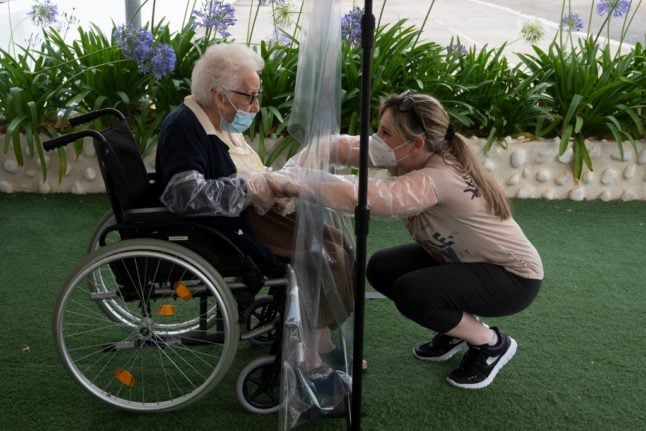In a sharply worded report on retirement homes during the pandemic, Amnesty said the “vast majority” of seniors had not been properly cared for, and that the measures put in place by both regions were “inefficient and inadequate”, and violated their rights.
Spain has been one of Europe's worst-hit countries, with the virus infecting more than 1.6 million people and causing nearly 46,000 deaths.
Close to half of that number are believed to be elderly people who died in homes, Amnesty said in the report published last Thursday, indicating that an upcoming Spanish government report was expected to put the figure at between 47 and 50 percent.
“The vast majority of older people living in residences in Madrid and Catalonia were not properly looked after, nor referred to hospitals when needed, were isolated in their rooms, sometimes for weeks, without contact with their families and some weren't even able to die with dignity” during the first months of the pandemic, it said.
Although some improvements had been made, “the situation in residential homes remains alarming in the second wave,” Amnesty said.

Regional protocols that recommended treating older people in residences rather than sending them to hospital “have not been changed” despite being shown to be “discriminatory”, family visits were still not guaranteed nor had the authorities taken the necessary steps to strengthen staffing levels, it said.
Amnesty said denying older people the right to health care was strongly linked to the austerity measures and public healthcare cuts following the 2008 financial crisis.
“A health emergency is no excuse for not providing adequate care for the elderly. Homes are not car parks for elderly people,” said Esteban Beltran, director of Amnesty's Spain office.
“The authorities must protect them.”
Urgent action needed
Not only had the elderly's rights to health, life and non-discrimination been violated by the authorities decisions but also their right to a family life and a dignified death, he said.
Citing regional figures, Amnesty said between March 8 and May 1, a total of 5,828 older people died in residences in the Madrid region, or 43.46 percent of all deaths within the area.
✍️ FIRMA: https://t.co/75i1B7lQMf y pide que se respeten los derechos humanos en las residencias. ¡Es urgente! No podemos dejar a las personas mayores solas.
Yo quiero #DignidadParaMisAbuelxs.
— Amnistía Internacional España (@amnistiaespana) December 7, 2020
And in Catalonia, 7,045 seniors died in care homes between March 1 and November 15, accounting for 46.9 percent of the regional death toll.
Amnesty said both regions “must take urgent action”, to change their hospital referral protocols, while the central government needed to push through legislation “guaranteeing the rights of older people living in homes across the country”.
It also recommended that the public prosecutor's office “closely monitor” the situation in residences and ensure investigations into any abuses or irregularities.
UPDATE: How is the Covid-19 situation across Spain as Christmas approaches?



 Please whitelist us to continue reading.
Please whitelist us to continue reading.
Member comments